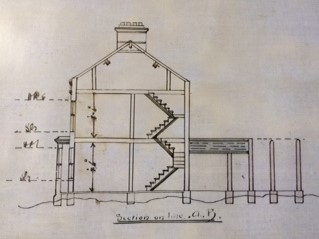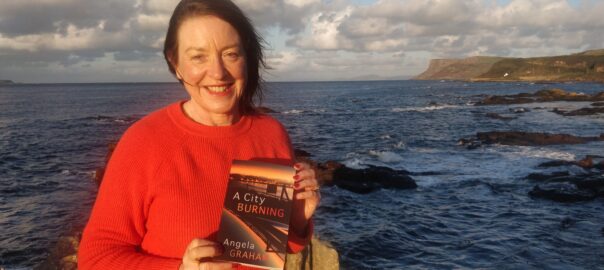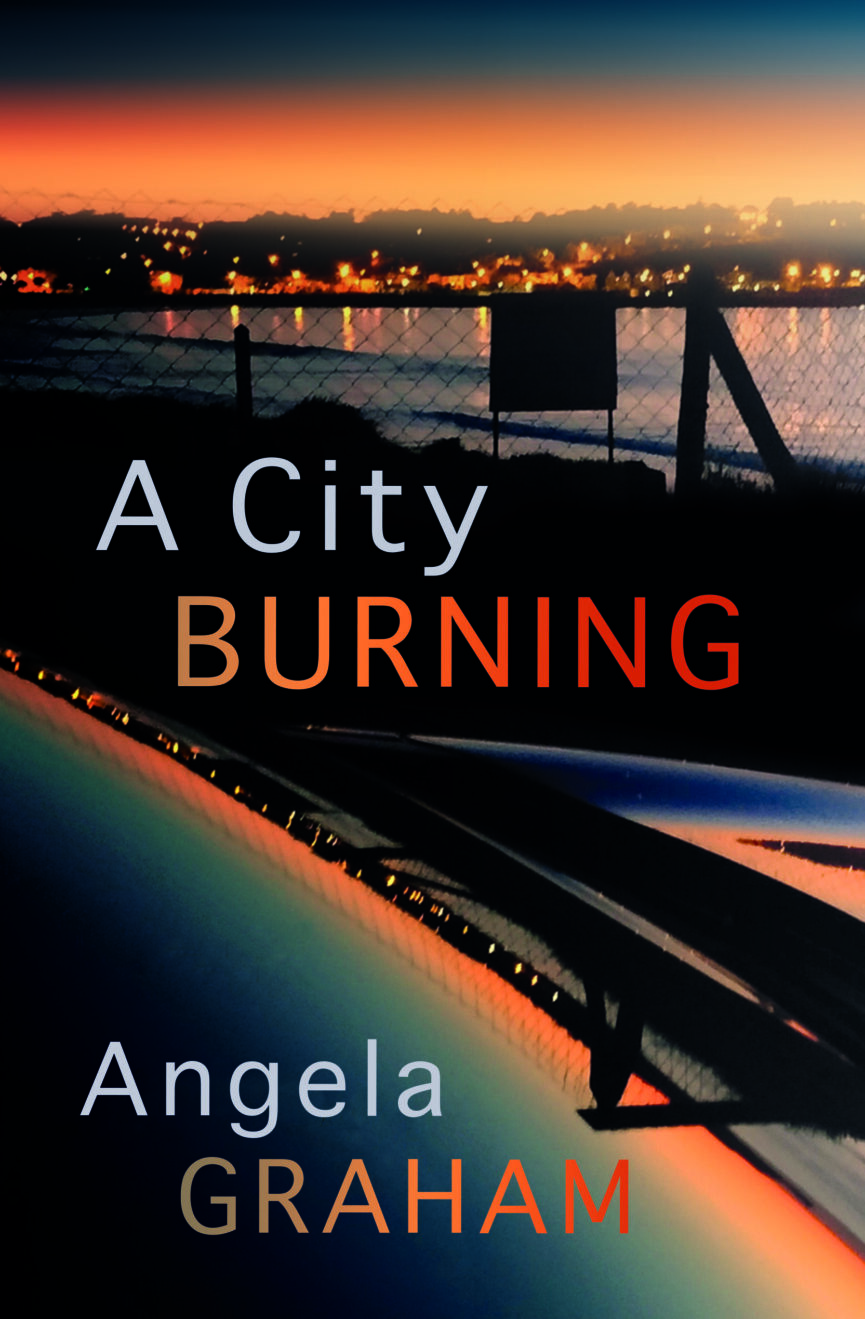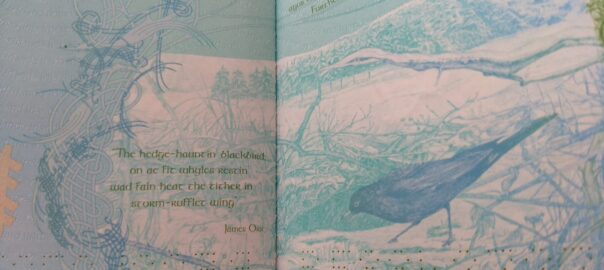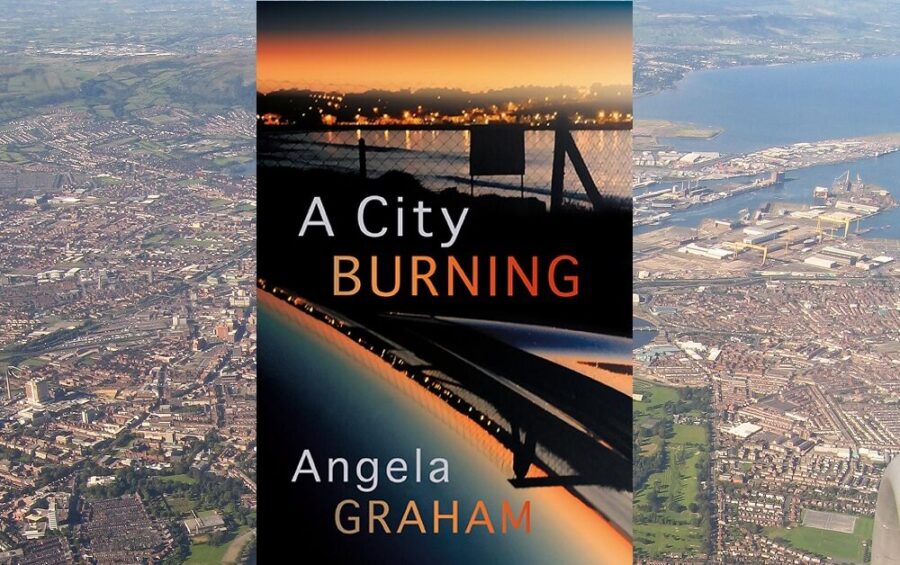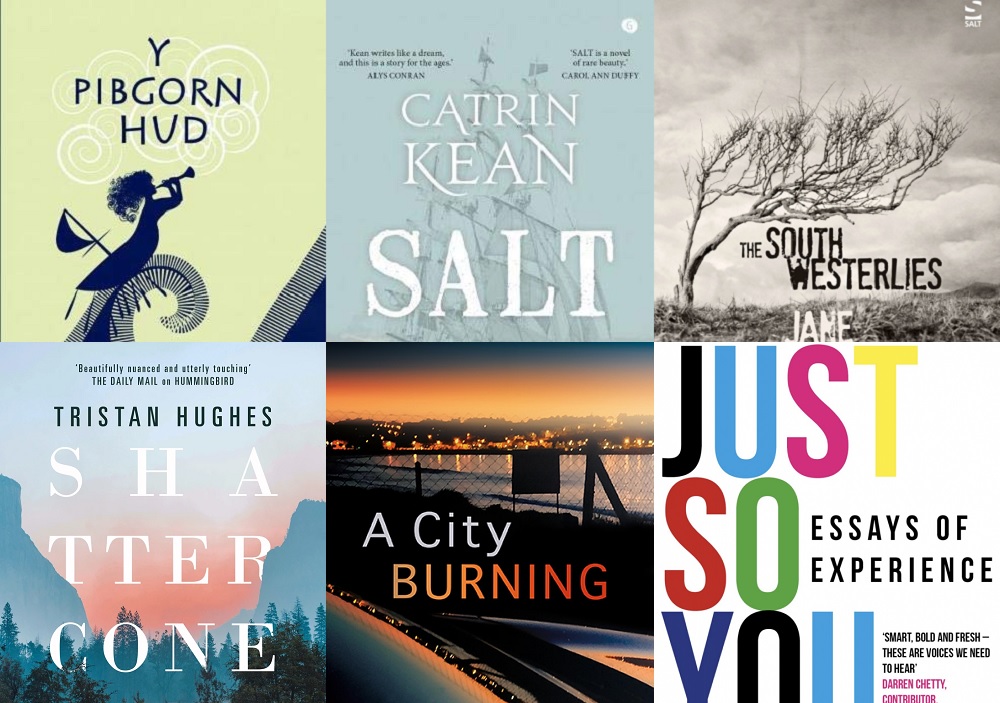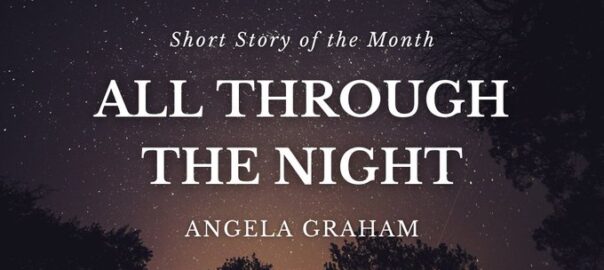“Get it up on the wall,” Des Jones says of plaster. “You can do what you like with it later.” He’s married to my husband’s cousin, Susan and he’s handled a quare few walls in his time. So I’ve got my book on Place and Displacement ‘”up on the wall’ this afternoon, tens of thousands of words, and I’ll put the finishing touches to it when I’ve had a metaphorical cup of tea. (The illustration is the cross-section of the house from the speculator’s submission to Belfast City Council. It’s the dream of the house before it became a reality, one of thousands of parlour houses built for the expanding city.)
I’ve had to go and have a bit of a lie-down too because the work has covered several years of research and preparation and centuries of event and my head is full of architectural and historical details. I received a Support for the Individual Artist Award (SIAP) from the Arts Council of Northern Ireland in 2019 towards research for this book.
This piece of work started as ‘a bit of context’ for a set of poems I’ve written about the house of my childhood and my experiences of growing up in east Belfast in the Sixties and Seventies. It gave me the opportunity to focus the search for my paternal grandfather which I’ve been carrying out, off and on, since the Eighties when I made a TV documentary which touched on some of the material. My grandfather was almost never spoken of in my childhood and it has taken much careful research, over many years, to tease out his story. I kept everything I came across and, over time, connections have matured, as I have, and I feel I am more able, at this stage, to see the broader picture.
It also became a forensic investigation of, not only the house, but the area, the field in which it was built and the people who put up the money for it, designed it, built it and first lived in it. It’s an account of belonging, and not being allowed to belong. Continue reading On The Wall: Place and Displacement 1st draft
